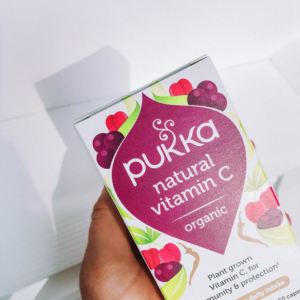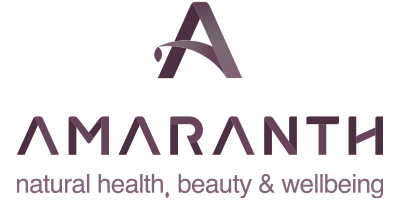Do we need extra Vitamin C?

By Nutritional Therapist Joanne Hill
Vitamin C has featured in the press many times over the last few months or so as one of the potential weapons in the fight against COVID-19. Much of this press initiated from an announcement by the Shanghai government in March that that COVID-19 should be treated with high amounts of intravenous vitamin C (1). This announcement was based on the usage of IV Vitamin C at dosages of approximately 4,000 to 16,00mg in Chinese hospitals treating COVID-19 patients.
Whilst this may sound promising, there are some important things to remember:
- Full research trials on Vitamin C are ongoing and the results are yet to be published, it cannot therefore be concluded that Vitamin C is a treatment for COVID-19.
- The recommendations from the Shanghai government are based on intravenous delivery of vitamin C at a dosage that is much higher than the upper tolerable limit specified for Vitamin C supplementation. This cannot therefore be taken as evidence that Vitamin C supplements can treat COVID-19.
Although there is currently no evidence to suggest that Vitamin C can treat COVID-19 specifically, this vitamin has long been used as a support for the immune system so it is worth exploring a few facts about vitamin C.
What is Vitamin C?
Vitamin C is an essential nutrient that we get through food. Brightly coloured fruits and vegetables including berries, peppers and citrus fruits are all rich in Vitamin C. Vitamin C is a water soluble vitamin which means it is absorbed in the body through water but any excess amounts are excreted rather than stored, this means it needs be taken regularly.
Vitamin C has a number of roles in the body :
- It is an antioxidant. This means that it can neutralise damaging compounds known as free radicals. In doing so it protects cells against the damage these compounds would cause, therefore reducing the aging process and potentially providing protection against diseases that have been associated with free radical damage and inflammation (cancers, heart disease and dementia).
- Vitamin C is essential for the formation of collagen, a protein that is used to make skin, tendon and ligaments. It is therefore used to heal wounds, form scar tissue, strengthen the skin structure and repair cartilage.
Can Vitamin C Boost Immunity?
Vitamin C has the potential to influence the immune system in a number of ways:
- In boosting collagen production, Vitamin C strengthens the skin and tissue membranes. The skin is a protective defence and a strong defence means that that viruses and other harmful substances can’t enter the body as easily.
- Vitamin C has been shown to boost the activity of certain immune cells that are known to engulf bacteria and harmful particles. In addition, it promotes antibodies to attack foreign or harmful substances in your blood (2).
Many studies have looked at the impact of Vitamin on the common cold and with varying conclusions. It is likely that much of this is related to the dosage used in the trials. As a broad conclusion, whilst the evidence that Vitamin C can prevent the common cold is limited, there is evidence that a dosage of 1g to 2g per day reduces the duration and severity of the common cold (3).
There is further evidence that Vitamin C helps with the preventation and treatment of the common cold in people exposed to periods of severe exercise (for example marathon runners) and those under severe stress. Vitamin C is excreted at higher rates during these time and so the immune system may become compromised if additional vitamin c is not taken.
Vitamin C Rich Foods
Vitamin C is found in brightly coloured fruits and vegetables. Foods particularly high in Vitamin C include:
- Acerola cherries
- Yellow and red peppers
- Chilli peppers
- Blackberries
- Rosehip
- Kale
- Kiwi
- Strawberries, blueberries and other berries
- Oranges and lemons
Vitamin C Supplementation
If you are considering supplementing with Vitamin C, you should be aware of the different forms available to find the one that is right for you. The Nutrition team at Amaranth can provide more guidance on available brands and dosage. Forms available include:
- Ascorbic Acid. This is the most common form of Vitamin C. It is water soluble and therefore the body will excrete what it is unable to use at the time. A side effect of high levels of ascorbic acid (over 1gram) taken orally is that it can cause diarrhoea in some people, therefore other forms are often considered.
- Ester C. Ester-C is a form of vitamin C that is buffered with calcium. This gives a neutral PH which makes it more gentle on the stomach and better tolerated than the ascorbic acid form.
- Liposomal Vitamin C. Liposomal vitamin C is a unique form whereby Vitamin C is encased in a phospholipid (fatty) membrane to form a liposome. In this form Vitamin C can be transported around the body and it is believed that it can be absorbed into the cells much more rapidly.
- Food Form. Personally, I think a nice way to take Vitamin C is as a powdered, concentrated form of a food that is naturally rich in the vitamin. Although the milligram dosage of these is not as high, you are assured that you are getting your Vitamin C in the way that nature intended.
In Conclusion
Whilst there is no firm evidence yet that Vitamin C can help in the prevention or regular treatment of COVID-19, it is clear that Vitamin C has many roles in the body can help to activate the immune system. At higher doses (1g to 2g) it has shown promising results against common cold viruses in the reduction of severity and duration of symptoms. Given the long history of the use of Vitamin C as a supplement it is something that I would recommend at this time, particularly for people who need extra immune support, those who are under significant stress or those who undertake endurance exercise. Higher dose vitamin C in ascorbic acid form can aggravate the digestive system so I my suggestion is Ester-C such as that by Viridian Nutrition or a natural form of Vitamin C such as Acerola Cherry Vitamin C Powder by Viridian or Pukka Herbs Natural Vitamin C.
This advice should not replace that given by your GP or other Healthcare advisor. Always seek advice before taking nutritional supplements, particularly if you are taking medications of have health concerns.
If you would like further information, please contact the team of registered nutritional therapists at Amaranth. hello@amaranth-wellbeing.com or 0161 439 9856.
References available on request. Contact Joanne@amaranth-wellbeing.com
Vitamin C has featured in the press many times over the last few months or so as one of the potential weapons in the fight against COVID-19. Much of this press initiated from an announcement by the Shanghai government in March that that COVID-19 should be treated with high amounts of intravenous vitamin C (1).
